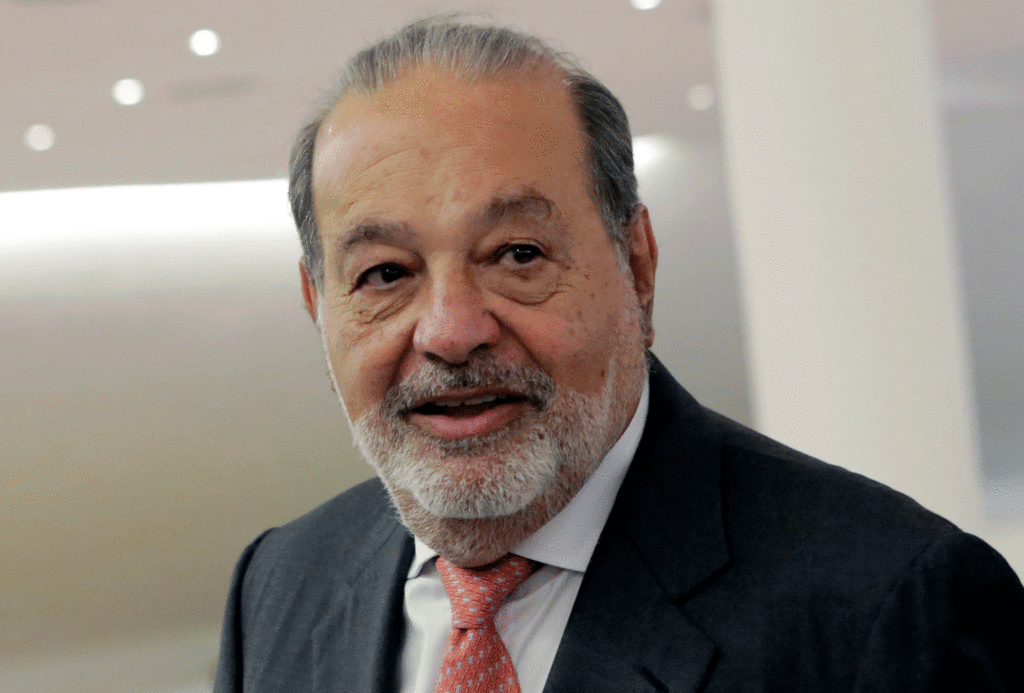
Carlos Slim

Carlos Slim Helú is a Mexican business magnate known as the owner of América Movil, a Mexican telecommunications corporation headquartered in Mexico City, Mexico. It is the eighth largest mobile network operator in terms of equity subscribers and one of the largest corporations in the world.
Early life and education
Carlos Slim was born in Mexico City on January 28, 1940, to Linda Helú Atta and Julián Slim Haddad, both Maronite Catholics from Lebanon. Slim always knew he aspired to be a businessman. At a young age, Slim began to develop his business and investment acumen. Slim received business lessons from his father, who taught him management, finance, and accounting, molding him to understand financial statements as well as the value of keeping accurate financial records, a manner that Slim carries on to this day.
Slim went to the National Autonomous University of Mexico to study civil engineering, where he also concurrently taught Algebra and Linear Programming. Slim also displayed an interest in economics, though Slim was a civil engineering major. After Slim finished his engineering degree, he then took economics courses in Chile.
Business career
Slim began his career in Mexico as a stock trader after he graduated in college. By 1965, Slim’s trading had profited him approximately $400,000. Slim used the money to start his brokerage firm called Inversora Bursátil.
One of Slim’s vast opportunities was the peso crisis in the early 1980s, joined with an abrupt decline in oil prices. The capital was leaving the country, and Slim acquired several companies at depressed valuations. Some examples are Cigatam (the country’s second-largest cigarette maker), General Tire, Reynolds Aluminum and the Sanborns chain of stores. Slim has a hand in literally hundreds of other companies, mostly through Grupo Carso SAB, Slim’s global conglomerate. Slim even has a stake in The New York Times.
Perhaps the significant portion of Slim’s wealth originates from telecommunications. Slim is the owner of América Movil, previously known Teléfonos de Mexico, or Telmex, was the country’s old telephone monopoly, similar to America’s AT&T Inc. The government privatized the company in the 1990s, and Slim was one of the first investors, via Grupo Carso. The price: $1.8 billion, half of which was put up for a 20% stake by Grupo Carso.
By 2012, Slim’s mobile telephony company, América Movil had taken over Telmex and obtained it into a privately held subsidiary. América Movil, via the subsidiary Telcel, has a market portion approximating 70% of the mobile phone line market, and 80% of the landlines in Mexico. The company is poised to sell assets to produce its market share below 50%, in the wake of new anti-monopoly regulations in Mexico. But Slim is probably not upset that the various assets, such as cell phone towers, could easily take in $8 billion or more – quite a profit on the original investment.
Slim’s approach has been to buy up sometimes distressed companies and try to transform them around. The benefit of that model is that it doesn’t significantly demand specific knowledge of any given sector; just a strong sense of what is underrated and what isn’t. Also, the conglomerate structure enables him to have stakes in such a different range of industries that his wealth is well prepared to manage global financial turbulence. Slim’s stocks might drop value in a general market downturn that concerns the whole economy, but a dilemma in the telecommunications industry won’t trouble his numbers much because some other area will likely be performing rationally well.
In 2015, Slim was ranked as the second-richest man in the world according to Forbes, but fell to fourth place and was the greatest dollar loser on the 2016 Forbes Billionaires List. In 2017, Slim slipped to sixth.
Not an area that Slim centered on in his early years, real estate has become a significant component of his portfolio in the past two decades. Part of this was a natural undertaking as part of the expanding conglomerate, such as the 20 shopping centers throughout Mexico, 10 of those in Mexico City. However, in 2006, Slim bought the Duke Semans mansion for $44 million, estimated as one of the last prominent private residences on Fifth Avenue in New York City. In 2015, it was put up for sale for $80 million; but in 2016, taken off the market when Slim could not find a buyer.
In 2015, Slim also acquired two commercial buildings in the United States, including PepsiCo Inc. (PEP) Americas Beverages’ offices just north of New York City and the Marquette Building in Detroit. Grupo Carso’s central complex headquarters in Mexico City, called Plaza Carso, covers the Museo Jumex, Museo Soumaya, three residential towers the Plaza Carso Shopping center and three commercial office buildings built at an evaluated cost of $1.4 billion.
According to Forbes business magazine, Slim was the world’s richest person from 2010 to 2013. As of April 2019, according to Forbes’ listing of The World’s Billionaires, Slim is the fifth-richest person in the world, with him and his family having a net worth calculated at $63.1 billion; and makes him the Latin America’s richest person.
Personal life
Carlos Slim was wedded to Soumaya Domit in 1967 until her death in 1999. Slim has six children and three of his older sons work in important positions in the companies managed by Slim where most are committed in the day-to-day running of Slim’s business empire.
Net worth
As of 2017, Carlos Slim has a net worth of approximately $54.5 billion.